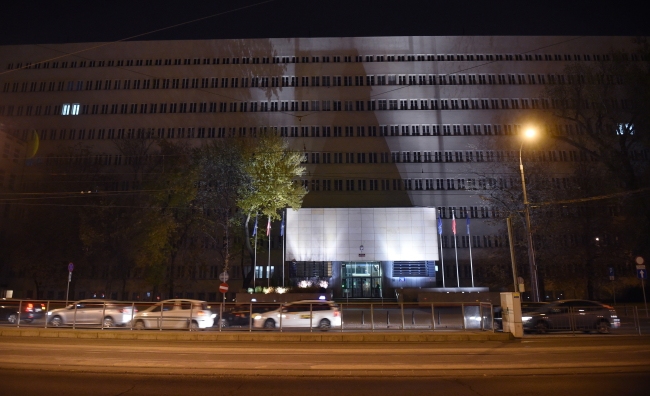
The Ministry of Defence office in Warsaw where a Polish army officer was arrested on Wednesday. Photo: PAP/Radek Pietruszka
News of the detention of a civilian, allegedly a Polish-Russian lawyer, followed the announcement on Wednesday evening that a high-ranking officer had been detained.
Polish authorities have declined to reveal details about the civilian, commenting only that the arrests follow separate investigations.
No foreign intelligence service has been officially named in either case.
Poland's defence minister Tomasz Siemoniak commented on Twitter that Wednesday was “an important day in the fight for purity in the Polish army,” saying that besides spying, a drug-dealing ring had also been broken up.
The arrest of the army officer was carried out by the Internal Security Agency (ABW) during an action at an office of the Ministry of Defence in Warsaw.
ABW has not provided details, saying only that “at the moment, ABW officers are carrying out assigned tasks together with the Military Police, at the request of the military prosecutor.”
If unofficial information that the two suspects are connected with Russian intelligence proves to be the case, the arrests come at a sensitive moment in relations during the two countries.
Poland has been the most forthright EU country in supporting Ukraine since the ousting of President Viktor Yanukovych from power in February and his flight to Russia.
Poland has repeatedly condemned Russia's annexation of Crimea and Moscow's support for separatists in eastern Ukraine.
Being found guilty of spying for a foreign state in Poland is punishable by up to ten years in prison.
Sandworm
Meanwhile, it is believed that a cyber espionage campaign based in Russia has been targeting European leaders and institutions for years.
The hackers “want knowledge that only a few people can use,” John Hultquist, senior manager for security firm iSight's Cyber Espionage Threat Intelligence team told Wired magazine.
“That's security-related information and diplomatic information and intelligence on NATO and Ukraine and Poland.”
The hacking campaign, code-named "Sandworm" is believed to have been in operation since 2009 and attacks vulnerabilities in the Windows operating system to access emails and PowerPoint documents, and which also enables hackers to try and steal SSL keys and code-signing certificates, says the report by the security firm. (nh/pg)